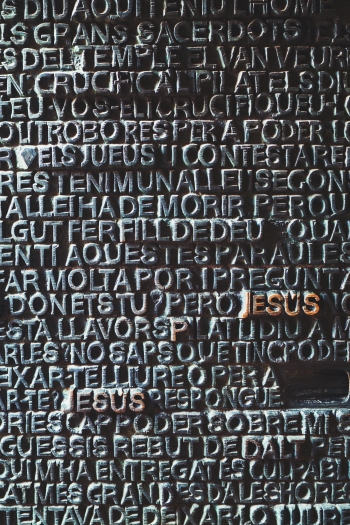
Ever since the Roman Missal was retranslated and we had to learn all new responses in the Mass, people have been asking if there will be a new translation of the Rite of Christian Initiation of Adults. It is likely that there will be, but we do not have one yet.
A call for restoration of the catechumenate
The Rite of Christian Initiation of Adults is the normative process for initiating adults into Christ. In 1963, at the Second Vatican Council, the bishops called for a restoration of the ancient catechumenate. But they left it up to Pope Paul VI to determine how that restoration would happen.
First English translation of the RCIA
Through the work of a study group headed by German theologian and priest, Balthasar Fischer, Pope Paul VI approved a provisional ritual text for experimental use in the church in 1966. Based on the church’s experience with that text, a final, official rite was issued in 1972. The rite was issued in Latin, as were all the new rites that came out of Vatican II. The Rite of Christian Initiation of Adults was translated into English in 1974.
Official English version of the RCIA
However, the English translation was provisional — something of a first draft. The Latin text was final, but the English version was still in transition. Nevertheless, it was the only approved rite for initiating adults. So while the English text was not yet considered final, the rite itself was final. We used that provisional English translation for over 10 years. In 1988, we received the official English translation of the Rite of Christian Initiation of Adults.
That 1988 translation is the only version of the Rite of Christian Initiation of Adults that exists in English. It is the same translation used in any English-speaking diocese in the world. It is the version you have on your bookshelf, and there has been no update or change since 1988.
Small changes to the current RCIA
Well, almost no change. As you know, the Roman Missal and the Order of Confirmation have both been retranslated from the original Latin texts. Some of the texts for the initiation rites appear in both of those documents and in the Rite of Christian Initiation of Adults. In any place where there is overlap, you can use the current RCIA translation or the new translation found in the Roman Missal or Order of Confirmation. If the text is a common text spoken by the people, e.g., “And with your spirit,” you use that new translation from the Roman Missal.
The RCIA might be retranslated, but the rites themselves will remain unchanged. Click to read more.
Rites for baptized candidates in the United States
Another important thing to know is that the United States version of the Rite of Christian Initiation of Adults has extra rites that are not in the original Latin version of the rite. These are all the rites that have to do with baptized candidates. These are additions that the United States bishops made for use in our country. When the Roman Missal was retranslated, anything that had been added by local bishops’ conferences was removed from the new translation of the missal. That has caused some people to speculate that if the Rite of Christian Initiation of Adults is retranslated, the rites for the baptized candidates might not be included in the text. However, even if that does happen, it does not necessarily mean those rites cannot be used. The United States bishops could, if they chose to, simply reissue those rites in a separate text.
Another thing to keep in mind is that the bulk of the retranslation efforts of our sacramental rituals took place under Pope Benedict XVI. Pope Francis has not seemed as concerned about driving new translations forward. That doesn’t mean that the RCIA won’t eventually be retranslated, but it might not happen for a while.
The rite itself is not changing
And finally, just as with the Roman Missal, the changes being considered for the Rite of Christian Initiation of Adults are changes to the translation of the texts. The rites themselves — with the possible exception of the rites for the baptized candidates — will remain unchanged.
What do you think?
If it were up to you, what changes would you make to the Rite of Christian Initiation of Adults? What do you hope remains the same in any future version of the rite?
If you don’t have your own copy of the Rite of Christian Initiation of Adults, you can order one here.









What I fervently hope will remain the same is paragraph38 (and all the places in the Rite where it alluded to.) This is wonderful: “In all the rites the greatest freedom is left in the innvitations and instructoins….” Don’t change it!
Thanks for this explanation, Nick and Diana! It will help all RCIA catechists to understand the past, present and future of the RCIA.
Hi Nick, it’s good to see that you are firing off some loaded questions, so in response here’s a return shot.
The biggest issue with a new version of the RCIA is not whether we get a new translation from Latin to English, but rather the translation we get from what is written in the current version to what actually happens in the parish. From my observations and discussions that I have with many RCIA parish team members, I suspect a lot haven’t actually read and pondered over how the clauses apply to the entire parish community and each of the inquirers. For example; in many cases we are still at a base level not yet convinced that there are two distinct pathways for catechumens and those already baptised. Many still don’t fully understand that giving knowledge and information in catechetical sessions may just be setting the catechumen or candidate up for failure because there has been no personal encounter with Jesus and his Paschal mystery. I suggest that the messages and the vibe coming from Pope Francis is less about rewriting ritual documents and more about getting our community members to rediscover their encounter with Jesus, discipleship and apostolic work so that as communities we are prepared to evangelise to our inquirers, guiding them into a deep encounter with the Paschal mystery which makes them want to be part of the Church and go out on mission to evangelise and share with others what has changed their life.